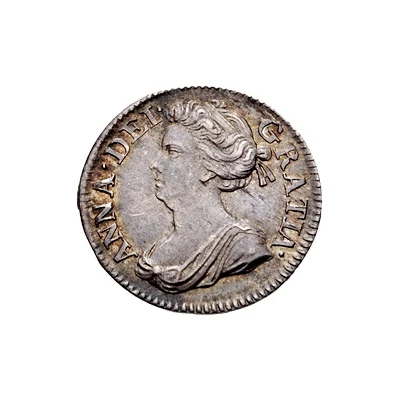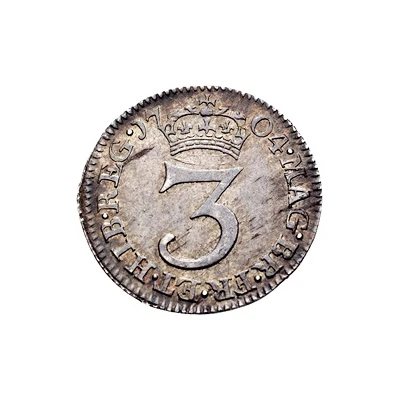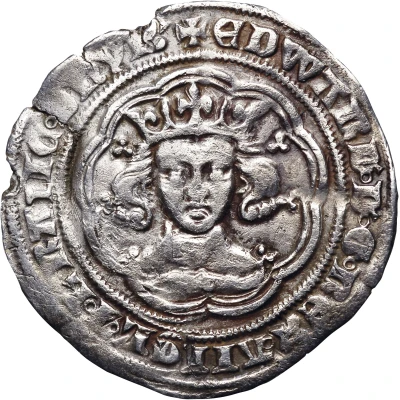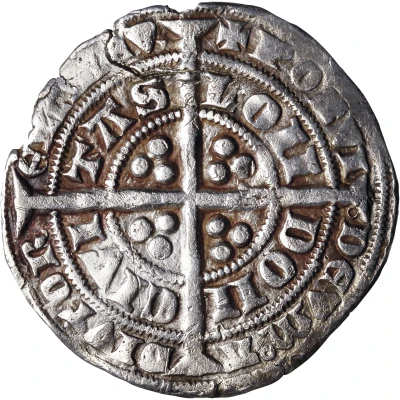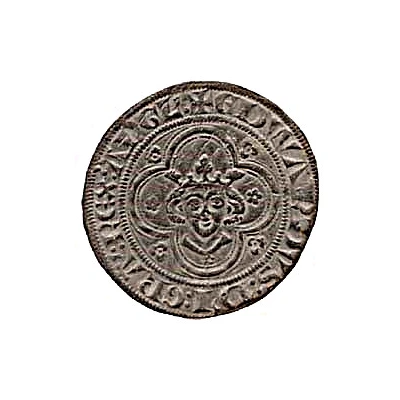
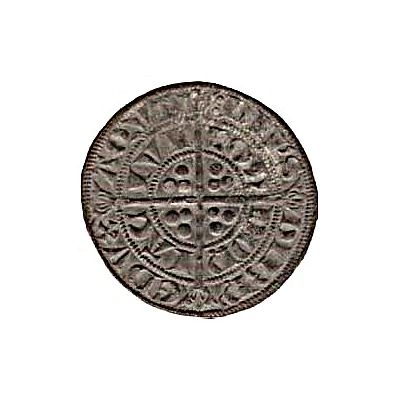

© Spink and Son
1 Groat - Edward I ND
| Silver | 5.7 g | 27 mm |
| Issuer | England (United Kingdom, British Overseas Territories and Crown Dependencies) |
|---|---|
| King | Edward I (1272-1307) |
| Type | Standard circulation coin |
| Years | 1279-1307 |
| Value | 1 Groat (1⁄60) |
| Currency | Pound sterling (1158-1970) |
| Composition | Silver |
| Weight | 5.7 g |
| Diameter | 27 mm |
| Shape | Round (irregular) |
| Technique | Hammered |
| Demonetized | Yes |
| Updated | 2024-10-09 |
| Numista | N#123837 |
|---|---|
| Rarity index | 97% |
Reverse
Large cross with three pellets in each quarter, two lines of legend.
Script: Latin (uncial)
Lettering:
DN'S HIBNE DVX AQVT
LONDONIA CIVI
Lettering (regular font):
DN'S HIBNE DVX AQVT
LONDONIA CIVI
Translation:
Lord of Ireland, Duke of Aquitaine
City of London
Comment
House of Plantagenet (1154-1399), Edward I (1272-1307), New coinage (1279-1307).This coin represents the earliest attempt by an English monarch to issue a groat, struck at 89 grains as part of a major re-coinage from 1279. It was not well received, with many being used as jewelry, and a successful groat coinage would not be introduced until the reign of Edward III.
Interesting fact
One interesting fact about the 1 Groat coin from Edward I's reign is that it was part of a broader currency reform that introduced a new standardized system of coinage across England. Prior to this, the country had used a variety of different coinage systems, leading to confusion and difficulties in trade. The introduction of the groat, along with other new coins, helped to establish a more stable and efficient monetary system that facilitated economic growth and development.
